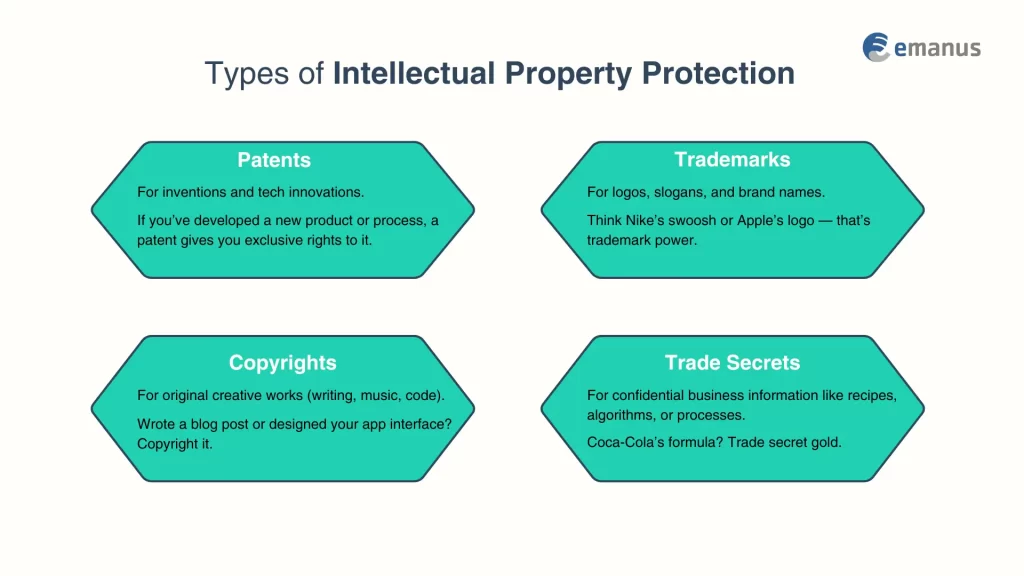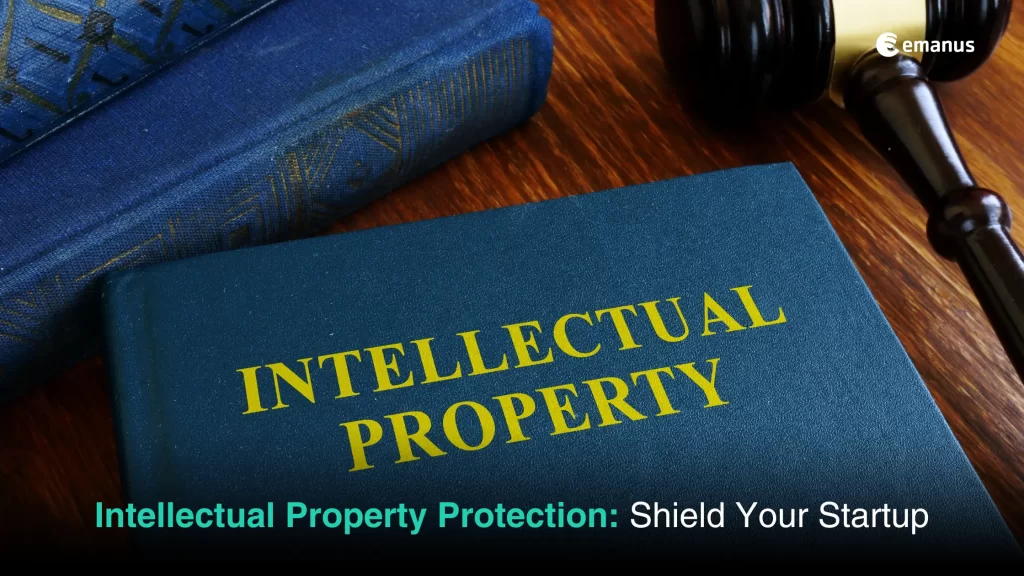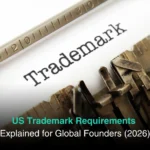You’ve poured your heart into your startup. Late nights. Endless coffee. That “aha!” moment that sparked your big idea.
But here’s the catch: if you’re not protecting that idea, someone else might claim it; or worse, profit from it.
That’s where Intellectual Property Protection comes in. It’s like armor for your startup’s most valuable assets — your ideas, designs, innovations, and brand.
Let’s dive into why it matters and how you can actually protect what you’ve built.
What Is Intellectual Property Protection?
Intellectual Property Protection is the legal framework that helps creators safeguard their intangible assets like: inventions, logos, brand names, software, and trade secrets.
So if you’re wondering:
What is intellectual property protection?
“It’s a set of legal rights that prevent others from using, copying, or selling your creations without permission.”
Why Startups Need IP Protection from Day 1
Startups thrive on innovation — but innovation without protection is like leaving your front door wide open.
Why is protecting intellectual property important?
Because it helps secure your competitive edge, attract investors, and avoid legal headaches.
Investors love IP. It shows you’re serious. It adds value. And most importantly, it proves your idea is yours.
Types of Intellectual Property Protection (and What They Cover)
Understanding the types of intellectual property protection can be the difference between owning your idea… or watching it slip away.

Here are the 4 main types:
1. Patents
For inventions and tech innovations.
If you’ve developed a new product or process, a patent gives you exclusive rights to it.
2. Trademarks
For logos, slogans, and brand names.
Think Nike’s swoosh or Apple’s logo — that’s trademark power.
3. Copyrights
For original creative works (writing, music, code).
Wrote a blog post or designed your app interface? Copyright it.
4. Trade Secrets
For confidential business information like recipes, algorithms, or processes.
Coca-Cola’s formula? Trade secret gold.
So, Should Startups Protect Their IP Legally?
Yes — or you risk losing your most valuable assets.
Even early-stage startups should take this seriously. One NDA can save you thousands. One registered trademark can save your brand identity.
The Role of Intellectual Property Protection in Startups
It builds a protective moat around your ideas, making your startup more defensible and fundable.
It also helps you stand out in a crowded market. Imagine pitching to investors and showing them you’ve secured a patent for your product. That’s powerful.
How to Protect IP in a Startup: 6 Actionable Steps
Ready to protect your intellectual property? Here’s how:
1. Know What You Own
Make a list of all your creations — logos, designs, product names, app code, documents, even pitch decks.
2. Use NDAs (Non-Disclosure Agreements)
Before talking to investors, contractors, or freelancers — get that NDA signed. Seriously. It’s not overkill.
3. Work With an IP Lawyer
Yes, it costs a bit. But the right legal advice can prevent massive losses later.
4. Register Your IP Early
Trademark your name and logo. File a provisional patent. Register copyrights. Don’t wait until someone else does.
5. Protect Against Internal Leaks
Have your employees and contractors sign agreements that state your startup owns all IP developed under your roof.
6. Think Global (If Needed)
Planning to go international?
Consider applying for IP protection in other countries, especially if you plan to sell globally.
What Happens If You Don’t Protect Your IP?
Let’s say you built an AI tool. You pitched it to an investor — no NDA. Six months later, a competitor launches a strikingly similar tool. Guess what? Without IP protection, your hands are tied.
Startups lose millions due to oversight like this. Don’t be one of them.
Conclusion: It’s Not Just About Protection — It’s About Growth
Your intellectual property isn’t just a legal checkbox. It’s your startup’s superpower.
And protecting your intellectual property gives you the freedom to scale, market, and pitch with confidence.
So whether you’re building the next big app, launching a D2C brand, or developing biotech — make IP protection part of your foundation.
Because building is hard. But defending what you’ve built? That’s where the real magic happens.
Need help figuring out what IP protection fits your startup? Start with a conversation. Talk to an IP expert at Emanus today, and safeguard your genius.
FAQs For Startup’s IP protection
- What is intellectual property protection?
Legal rights to stop others from using your ideas without permission. - Why is protecting intellectual property important?
It prevents theft, builds trust, and adds business value. - Intellectual property protection and social complexity are examples of…
Strategic assets that shape innovation and competitiveness. - Should startups legally protect their IP?
Yes — it’s essential to avoid legal issues and protect your ideas. - What is the role of IP protection in startups?
It secures innovation and attracts investors. - How to protect IP in a startup?
Use NDAs, consult an IP lawyer, and register your IP early.






